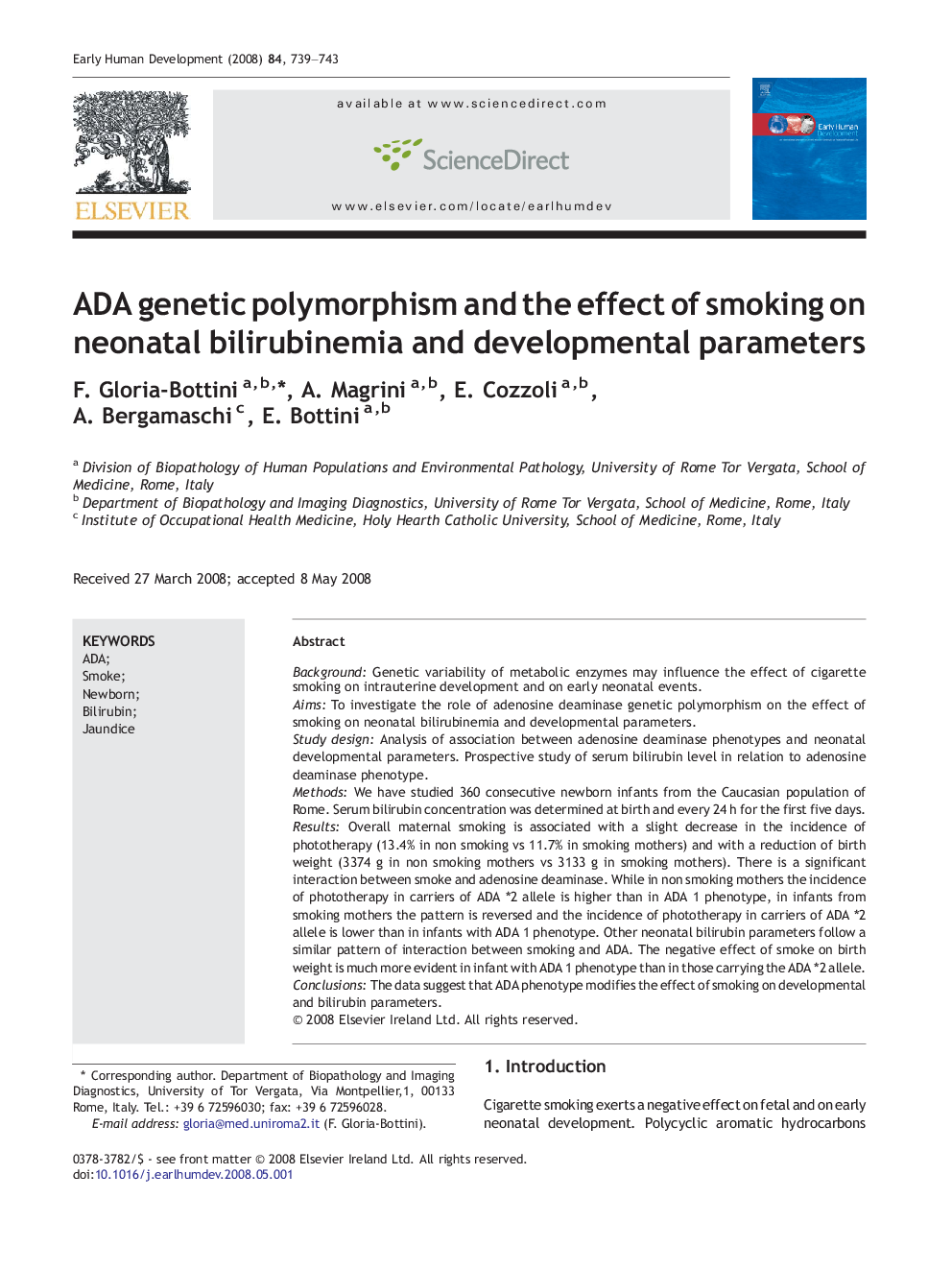| Article ID | Journal | Published Year | Pages | File Type |
|---|---|---|---|---|
| 3918570 | Early Human Development | 2008 | 5 Pages |
BackgroundGenetic variability of metabolic enzymes may influence the effect of cigarette smoking on intrauterine development and on early neonatal events.AimsTo investigate the role of adenosine deaminase genetic polymorphism on the effect of smoking on neonatal bilirubinemia and developmental parameters.Study designAnalysis of association between adenosine deaminase phenotypes and neonatal developmental parameters. Prospective study of serum bilirubin level in relation to adenosine deaminase phenotype.MethodsWe have studied 360 consecutive newborn infants from the Caucasian population of Rome. Serum bilirubin concentration was determined at birth and every 24 h for the first five days.ResultsOverall maternal smoking is associated with a slight decrease in the incidence of phototherapy (13.4% in non smoking vs 11.7% in smoking mothers) and with a reduction of birth weight (3374 g in non smoking mothers vs 3133 g in smoking mothers). There is a significant interaction between smoke and adenosine deaminase. While in non smoking mothers the incidence of phototherapy in carriers of ADA ⁎2 allele is higher than in ADA 1 phenotype, in infants from smoking mothers the pattern is reversed and the incidence of phototherapy in carriers of ADA ⁎2 allele is lower than in infants with ADA 1 phenotype. Other neonatal bilirubin parameters follow a similar pattern of interaction between smoking and ADA. The negative effect of smoke on birth weight is much more evident in infant with ADA 1 phenotype than in those carrying the ADA ⁎2 allele.ConclusionsThe data suggest that ADA phenotype modifies the effect of smoking on developmental and bilirubin parameters.
